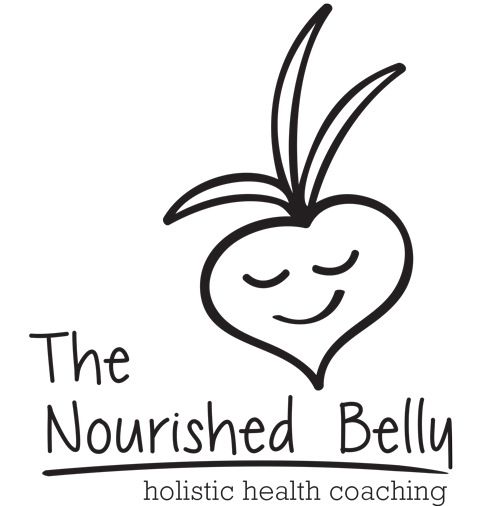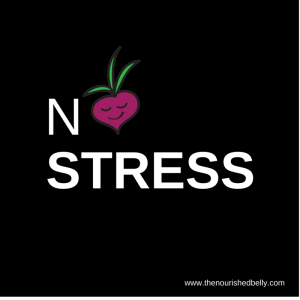Do you do any of the following?
- Have your phone out on the table at meals
- Have the desire to know where your phone is at all times
- Respond to texts/emails while you are in the company of other people.
- Find yourself checking your phone compulsively
- Spend time when you first wake up on social media
Yes? Hm....then read on.....
Recently, I went to Cuba for a week, and outside of enjoying all the great art and salsa dancing, one thing I did NOT miss was being on the internet. I just got used to going around without my phone, and I didn't really miss being connected. Of course it helped being in a beautiful place that was incredibly stimulating, but I was transported to a life before the craze of smart phones and I felt... pretty darn free.
If you are like me, you are quite attached to your smartphone. I use the excuse that I use social media for my business, which I do, but I also spend endless hours scrolling through my facebook and instagram feeds and reading random articles, like how many celebrities don't use make up, and I also get to see all of the vacations and baby pictures of friends and acquaintances, which is actually something I appreciate. It's not all bad. However, it was the last thing I did at night, and the first thing I did in the morning. And those behaviors I listed at the top? I'm totally, 100% guilty of doing all of them.
In Cuba, it takes some effort to get online. You have to go to a hotel, buy a card, log in. I checked facebook a few times down there, and every time, I realized that I didn't really need to know anything that was on there. Did this ADD to my life? I started to also realize that it was TAKING AWAY from giving my full attention to things. When I find myself checking email when I'm with my friends, or mindlessly scrolling through while I'm eating... there's a behavior here that's not in my best interest.
Since I've returned, I've taken facebook off my phone, and it's incredible the retraining I have to do. There is an incredible pull to check my phone, and it turns out there's a physiological reason for it.
The unpredictability of when we will receive a text, or a like, or a share, kicks our dopamine release into high gear. Dopamine is a neurotransmitter that is one of our feel good chemicals. Dopamine helps us seek out rewards again and again. Every time we see a text, or a like, we receive a little dopamine release. Dopamine also helps us to anticipate these little pings from our phone, so you find yourself checking your phone repeatedly to see if someone contacted you... it makes sense right?
There are many studies out there that link social media use to depression, a few I've linked below. There was an interesting article in the New Yorker, differentiating between the difference between actively and passively engaging in social media, facebook in particular. The article described a greater sense of loneliness when passively scrolling through content, and an enhancement of mood when people were actively engaged. I think this is an important point to make, and the constant access to facebook was just making me more of a passive user.
So enough! I want to make a change! Here are some behaviors I'm working on:
1) Putting my phone on airplane mode at night so I'm not subject to pinging and distractions while I'm snoozing (you could also argue that you are not being exposed to radiation...check out the EWG latest release on the dangers of cellphone)
2) Taking facebook and the most egregious time wasters off my phone. I still see benefits from using social media, but I can easily access these sites from my computer. I don't need access all day, every day.
3) Putting my phone away during meals and friend hang out times. There's no need for me to check messages and answer emails when I'm doing self care time, which includes eating meals and spending quality time with friends. Plus, it feels rude when other people are texting or on their phones when we are hanging out. I don't want to do that to others.
4) Consider doing a media challenge! I had a client do a media break, which included watching TV and being on her phone after she came home from work that I think is a great idea. (You know who you are! Shout out!)
5) Remember what we used to do BEFORE social media? Reading a book maybe? Practicing music, knitting, going for a hike. Think of all the things you feel like you don't have time for... and start doing them.
So far, despite the cravings I have to check my phone, I'm really enjoying being on social media less. Last Monday I went to go see free music at the Starline Social Club in Oakland... live music! What a treat! There really is a LOT to do out there, so let's get back to doing it.
Do you have a trick or an activity that you'd like to get back to when you decide to take a break from social media? Share with us in the comments below!
Happy Nourishing all....
Tammy
References:
https://www.forbes.com/sites/amitchowdhry/2016/04/30/study-links-heavy-facebook-and-social-media-usage-to-depression/#429938134b53
http://psychnews.psychiatryonline.org/doi/full/10.1176/appi.pn.2017.1b16
https://www.psychologytoday.com/blog/brain-wise/201209/why-were-all-addicted-texts-twitter-and-google
https://www.psychologistworld.com/biological/neurotransmitters/dopamine
https://www.psychologytoday.com/blog/evolutionary-psychiatry/201105/dopamine-primer
https://www.sciencenewsforstudents.org/article/explainer-what-dopamine



